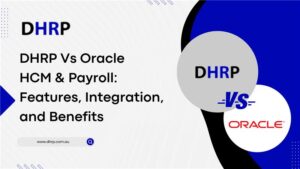Sales teams worldwide often face significant challenges, including shorter buying cycles, higher customer expectations, and the constant search for qualified leads.
Dynamics 365 CRM is designed to take tedious administrative tasks off sellers’ plates, enabling them to act faster.
Previously, we explored CRM and marketing automation trends, as well as the top CRM trends shaping 2025. Today, we’re shifting the focus to something even more practical.
Dynamics 365 CRM, whether deployed on-premises or in the cloud, can directly boost sales team productivity and empower sellers to work smarter every day.
Let us help you with the details.

At-a-Glance: What Dynamics 365 Delivers for Seller Productivity
Here is what you can get from Dynamics 365 CRM software for sales productivity:
- A single source of data and truth for all the contacts and activities, including account histories.
- AI-driven prioritisation and drafting (Copilot).
- Integrated business and social signals (LinkedIn Sales Navigator).
- Smooth cooperation between mobile apps and Microsoft Teams.
- Repetitive tasks can be eliminated with low-code automation and custom apps (Power Platform).
How Dynamics 365 CRM Boosts Sales Team Efficiency
If you are looking to improve sales performance with Dynamics 365 CRM, here is how Dynamics 365 CRM implementation will help you:
1. Unified CRM Data that Reduces Busywork
With Dynamics 365 CRM , all your customer, transaction, and activity data is kept in Microsoft Dataverse. This unified CRM structure ensures salespeople don’t have to waste time hopping between spreadsheets, emails, and various tools. Having everything in one data model means:
- You can quickly look up account histories and recent interactions.
- Your pipeline health is more accurate since records stay consistent across the organisation.
- For regional teams in Australia and channel partners, reporting becomes easier, with tailored views. Plus, thanks to Power Platform and Dataverse, it’s simple to create custom apps, approval workflows, or dashboards that fit the local sales process.
2. AI That Helps Sellers Do the Right Work at the Right Time
One of the rising benefits of Dynamics 365 CRM for sales teams is its AI features. With Dynamics 365, some new AI features really help cut down on the manual workload:
- Predictive lead and score models point out which leads are most likely to convert. This allows salespeople to focus their efforts on the calls that matter most, saving time on qualification and boosting conversion rates.
- There are also Copilot-style tools that can draft emails, summarise meeting notes, and suggest next steps. This can save minutes or even hours on everyday tasks, while also making outreach more consistent. The latest Copilot updates are even pulling insights from multiple sources, providing sellers with concise, actionable summaries.
3. Sales Intelligence: LinkedIn Sales Navigator + Dynamics
For B2B sellers, especially in Australia’s tech, mining, and professional services sectors, linking LinkedIn Sales Navigator with Dynamics offers some solid benefits.
- You get instant access to org charts and can easily see mutual connections right in your account records. Plus, you can embed profiles and create contacts in CRM with just a click.
- This setup helps with better targeting and allows for more personalised outreach by keeping track of real-time job changes or updates in roles. It really cuts down on the hassle of research and boosts the quality of responses when you first reach out.
4. Collaboration Flows Inside Microsoft Teams
These days, selling usually involves teamwork. With Dynamics’ Teams integration, you can pull CRM records right into your chats, making it easy for teams to:
- Talk about opportunities while having all the context (you can see account and opportunity pages right in Teams).
- Share meeting notes, work together on proposals, and bring in experts when needed.
- You can also use @mentions and tasks without leaving the chat, which helps speed up decision-making. This approach is especially useful for cross-functional deals in Australia, where sales, technical, and procurement teams can hand off information much more quickly.
5. Automation and Process Standardisation
Power Automate and low-code tools give companies a way to:
- Streamline how they generate proposals, handle approvals, and manage reminders.
- Keep sales stages and necessary activities in check to maintain a clean pipeline.
- It's also easy to create simple mobile forms for field reps, which is especially useful for teams in regional Australia visiting different sites.
- With automation, manual errors drop, allowing salespeople to concentrate more on building relationships instead of getting bogged down in administrative tasks.
6. Practical, Fast Wins Sales Teams Can Deploy Now
Here are quick, high-impact improvements teams can activate without heavy change:
- First, let’s turn on predictive lead scoring to focus on the best incoming leads. Starting with a pilot would be great, and we can fine-tune it based on sales team feedback.
- Next, make sure account teams working with enterprise clients have access to LinkedIn Sales Navigator to enhance their outreach efforts.
- It might help to roll out a Copilot-enabled template for summarising meetings and follow-ups to cut down on admin tasks.
- Finally, let’s set up a straightforward Power Automate flow to create proposals and send them to legal and finance. This should help eliminate manual handoffs and speed up the time it takes to get quotes out.
Conclusion
Bringing in Dynamics 365 with a straightforward plan—first testing AI in CRM features, then adding Sales Navigator for B2B accounts, and wrapping up with automated repetitive tasks—can really help Australian sales teams save time and boost their success rates.
It’s all about taking small steps, tracking results, and then expanding the automations and AI. This approach empowers your salespeople to focus on what they do best: building connections and sealing the deal.
Partnering with DHRP, a leading CRM implementation provider, ensures a smooth deployment and maximises your CRM Implementation ROI. Curious about CRM implementation cost? Let’s talk about it.
FAQs
Dynamics 365 CRM automates administrative tasks, unifies customer data, leverages AI for prioritisation, integrates LinkedIn Sales Navigator, and streamlines collaboration, enabling sales teams to focus on high-value activities and close deals faster.
Benefits include a single source of truth for customer data, AI-driven insights, seamless team collaboration, improved lead prioritisation, automation of repetitive tasks, enhanced targeting via LinkedIn Sales Navigator, and faster decision-making.
It centralises data in Dataverse, provides real-time pipeline insights, supports predictive lead scoring, enables custom dashboards and reports, tracks activities efficiently, and ensures accurate forecasting for better overall sales performance.



































































































